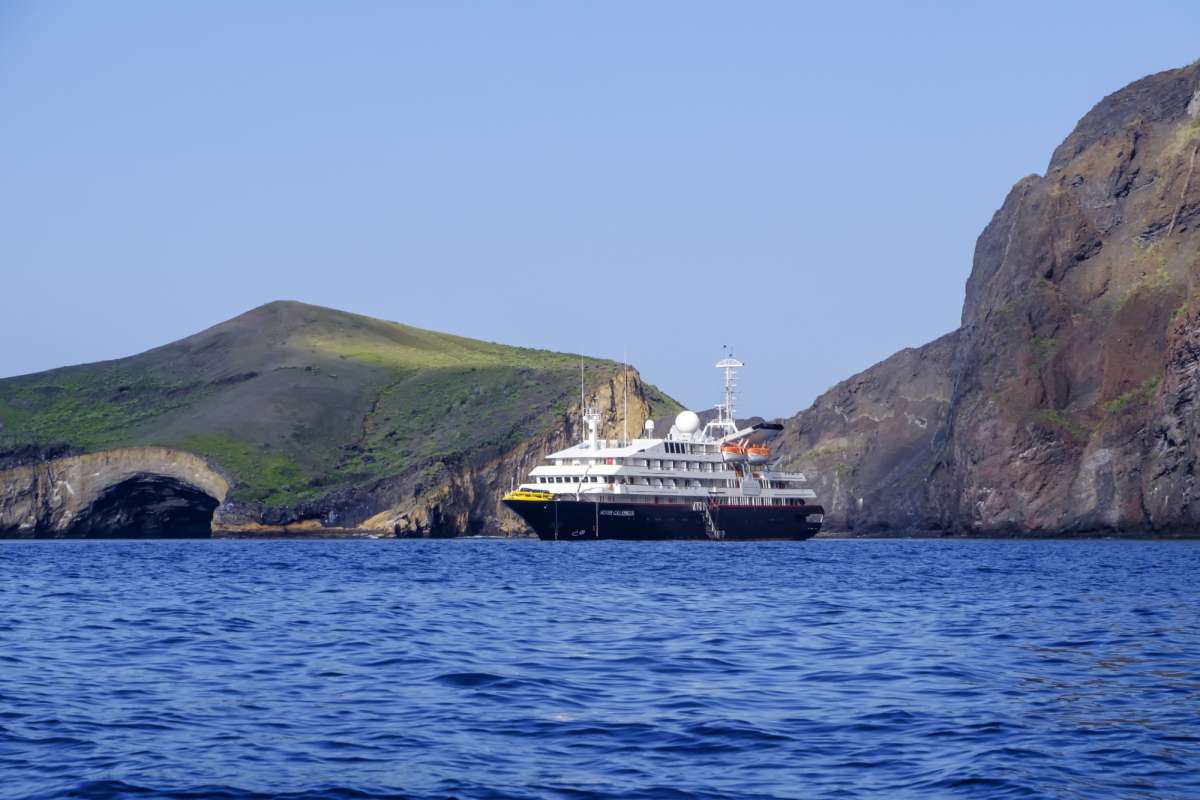The popularity of water-based tourism is exploding, thanks to the desire of luxury travelers to have exclusive but authentic experiences in remote destinations.
While seemingly quite different, expedition cruises, yacht charters, and liveaboard diving trips offer once-in-a-lifetime adventures without sacrificing comfort. Aboard exclusive and intimate vessels, guests can venture to remote destinations that larger ships can’t reach but still experience luxurious accommodations, five-star cuisine, and personal service they are used to.
It was evident from the findings in the Flywire “Annual luxury travel report 2024: What the most discerning travelers want” that everything about trips of this kind is the definition of luxury travel.
Based on a survey of almost 700 U.S.-based luxury travelers, the report also found that hybrid working presents the freedom to travel whenever they choose, and most are planning on spending more on their vacations in the next year and are willing to pay more for exclusive experiences in a private group.
These insights, and others in the report, point to significant growth opportunities for travel companies offering expedition cruises, liveaboard experiences, and yacht charters. Read on for the details.
1. Strong alignment between traveler expectations and luxury provider offerings; demand for cruises and adventure trips growing
The Flywire report showed a significant increase in luxury travelers who said their trips in 2024 would include a cruise (44%, +69% YoY), and a small but growing proportion said they would be chartering a yacht. But it also showed interest in trips that could offer small vessel travel companies a crossover target market—those wanting an adventure trip (18%), an exotic locale (15%), a culinary trip (11%), and those wanting a safari (9%).
What might make small vessel travel providers attractive to these travelers is that there is no need to choose between once-in-a-lifetime experiences and luxury surroundings. Remote destinations, for example, the Galapagos Islands, Antarctica, or smaller Indonesian islands, often lack basic tourism infrastructure, let alone luxury amenities.
While 45% of luxury travelers said that luxury travel is defined by once-in-a-lifetime experiences, others say it is defined by their surroundings and the service they receive. When asked what defines luxury travel, 71% said it is staying in first-class hotels, 70% said first-class travel arrangements, 56% said having the best culinary experiences, and 47% said someone else taking care of all the arrangements. Small vessel vacations have these luxury hallmarks and more. While aboard, guests experience the white-glove personalized service, gourmet cuisine, and luxurious accommodations and facilities that luxury travelers want. Limited guest numbers also mean exclusive access to bucket list experiences through intimate local expert-led excursions to suit almost any interest, including wildlife, hiking or kayaking, cuisine, culture, and more.
2. Hybrid working means no limits for luxury travelers, key small vessel destinations increasingly of interest with some key generational differences
Most luxury travelers surveyed for the Flywire report said that hybrid working means they can travel at most times of the year, an increase of 11% from 2023. 93% also said that travel is no longer limited to one season.
The report also showed higher levels of interest from luxury travelers in visiting destinations across the globe this year, some of which are key destinations for companies offering expedition cruises, yacht charters, and liveaboard experiences. 43% said they would be visiting Western Europe, 31% the Caribbean, 27% South America, 21% Asia, and 17% the South Pacific, with interest in some destinations up significantly compared to 2023.

3. Travel agents valued by luxury travelers for their advice, services, and peace of mind
While most travel companies take direct bookings, travel agents and advisors still account for a significant proportion of sales. Importantly, luxury travelers consider agents indispensable, with the report showing that 85% believe that working with a travel agent is the only way to have a truly luxury experience (+5% YoY).
96% of the luxury travelers surveyed say they have used a travel agent or advisor, or are likely to use one, for their trips over the next 18 months, and 93% think working with a travel agent is the best way to create personalized travel experiences (+7% YoY). Interestingly, Gen Z/Millennial (18- 45-year olds) and Gen X (46- 61-year old) travelers are more likely to use a travel agent or advisor than their older counterparts and say they cannot imagine traveling without one.
But when asked why they use travel agents, the top reasons luxury travelers gave were that they provide peace of mind (67%), know about travel restrictions (65%), and solve problems when they happen (63%). Another 58% use them because they take care of everything, which shows that it is not only advice that luxury travelers value from their travel agents but the reassurance they offer is equally important.
4. Luxury travelers willing to spend more, particularly for unique experiences, but want their payments to be simple and secure
For the third year running, luxury travelers told Flywire that they were planning to spend more on their vacations than last year, and younger generations of travelers are more likely to say their budgets will increase than older ones. Critically for expedition cruise, liveaboard, and chartered yacht companies, 93% say they would pay more to travel with a private group for unique experiences. But, while luxury travelers are willing to spend more, they also want their payments to be simple and, critically, safe.
94% of luxury travelers said they want an easy way to pay for all parts of their travel at once, and the security of their payment is their top concern. Payment security is their top pain point, alongside expected fees, and the inability to use their preferred credit card or pay in their local currency. Finding a better way to handle payments, allowing guests to pay in their own currency using their preferred payment method, giving complete cost transparency and real time progress updates, will mean guests are impressed with their experience before they’ve even stepped on board.
Learn more
- Explore more luxury traveler trends in the “Annual luxury travel report: What the most discerning travelers want”.
- Learn how Flywire solves travel payments for ocean experience travel providers

